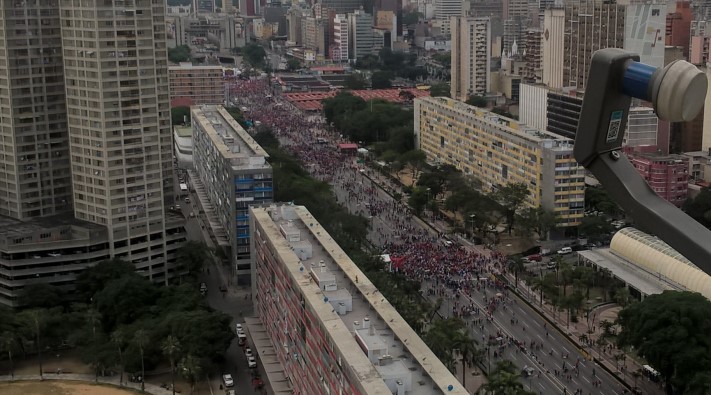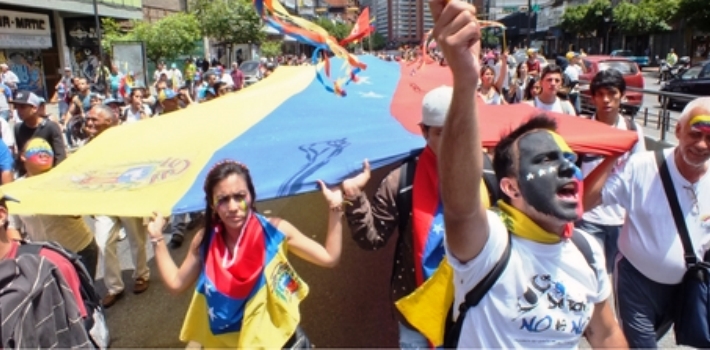Pedro Garcia Otero, Spanish managing editor of the PanAm Post wrote this piece minutes after returning from the Great March on Caracas: the September 1 demonstrations in Venezuela that saw both the opposition and the regime turn out.
A heartbroken Nicolás Maduro spoke on the streets today. This time, the president did not dare to transmit his speech on national radio and television, and with good reason.
Chavismo is dead. It retains power only because it has full control over governing institutions, but it is no longer in the hearts of the people. And there is nothing Maduro can do about it.
He might close the highways to Caracas. He might threaten the opposition leaders who organized the March on Caracas. But it won’t change how people feel.

The main opposition party, the Democratic Unity Roundtable (MUD), organized the march in Venezuela September 1 where an unofficial count had 1.5 million people participating.
Maduro might even announce withering counter-offensives, such as Hitler did in April 1945. The faces of his followers, less than 3,000 people who gathered in the streets of Caracas to hear his speech, showed their reluctance and fatigue. These faces are impossible to hide from forever.

Image of the Bolívar Avenue during Nicolás Maduro’s speech. The lack of audience is evident. (Cortesía)
If Maduro, Jorge Rodríguez and the rest of his entourage tried to counter the actions of the opposition on Thursday, they failed.
On a platform near the main stage, a speaker asked the audience: “Where are the Conviasa people?” And a small group of workers from the national airline replied.
He continued: “Where are the people from the Ministry of Transport?” Another small group responded, unimpressively, in what seemed like a clear demonstration of the little power that the administration has left. It is now limited to public employees who were forced to attend the demonstration.
On the other side of the fight, thousands and thousands of people overflowed the city’s main streets to get to the Great March on Caracas. They even overflowed the access roads to those streets.
Maduro boasted that it did not get to Libertador Bolivarian Municipality. But the demonstration did not enter the largest municipality in Caracas: it started out there. Maduro cannot deny defeat so easily.
The opposition, stronger after this gigantic mass demonstration, announced a real offensive. There was a “cacerolazo” on Thursday night, and within a week, the movement will march toward the National Electoral Council (CNE) building. Moreover, the opposition has planned for Venezuelans to retake all of the county’s capital cities two weeks from today.
Maduro’s government is clumsy. The fault for that lies in their political backgrounds, and the people Hugo Chávez surrounded himself with during his years as president.
Chávez never wanted an alternative to his leadership. Consequently, those who progressed within his party were the most obedient, the most corrupt and the least talented.
Maduro was not there because Chávez considered him the smartest of his followers. In fact, many believe that Chávez, an eternal optimist, thought that he would defeat the cancer that eventually killed him. In this context, Maduro was the only one who assured him that he would return the power to Chávez after his recovery.
Maduro just announced the capture of Colombian paramilitary camps. However, his lack of leadership has created a sense of fatigue within his own followers.
If he had no strength to beat the opposition before the March on Caracas, he has even less now. His own party is crumbling. Its members must be wondering if they should continue following such an uneducated, intemperate, and erratic leader.
